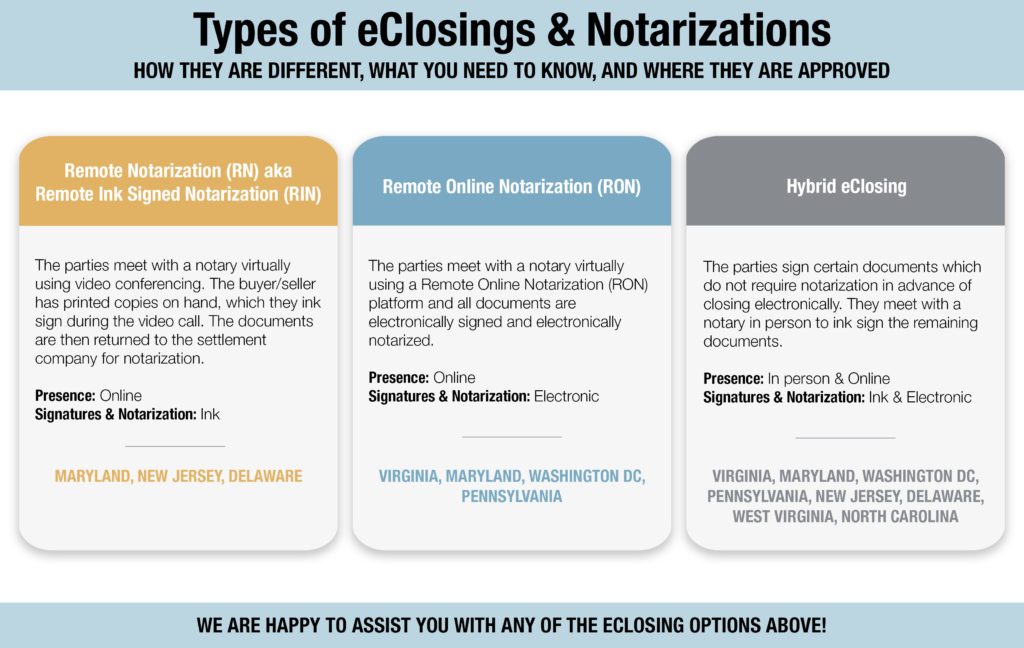
Source: Long & Foster
The Covid-19 stay-at-home orders and social distancing recommendations have highlighted the need for digital closing options.
The real estate industry has been talking about transitioning from paper and wet-ink signings to remote options for years. It has yet to become the norm. There are several options to close on a home with at least a portion of the signing completed remotely. A fully executed digital closing is not yet a widely accepted practice. We are seeing more and more indications that it will happen.
What’s Preventing Fully Digital Closings
Adoption of the full electronic closing as standard practice, including remote online notary, has been slow to roll out due to several influencing factors.
State regulations
At this time, only 35 of 50 states have enacted some form of remote online notarization. In these states, the specific rules for what is allowed and what technology can be used varies.
Courtroom capabilities
For a digital closing, it is required that courthouses have electronic recording capabilities. Many across the country are not yet set up to accept e-recordings.
Lender rules
Not all lenders accept electronic closings.
A Path to Electronic Settlements
The industry is wanting, now more than ever, to find a way to allow buyers and sellers to close remotely. In response to the Covid-19 pandemic, Fannie Mae and Freddie Mac have issued guidance accepting loans where documents have been electronically notarized either in person or remotely using real-time, two-way audio/video communication tools.
There is also a bill introduced in March 2020 called the SECURE Notarization Act, which if approved would supersede state laws. This would allow for remotely notarized documents to be accepted nationwide. In the meantime, many state governors are issuing temporary guidance to allow consumers in their state to have more digital closing options available to them while stay-at-home orders are in place.
A State-by-State Overview
With so many options available and regulations varying state by state and changing rapidly, how can you know which option is best and if it is allowed?
Here are the different options and in which states they are available.

Please contact me if you have questions about how real estate transactions are being conducted using digital tools and safety protocols. I’d be happy to talk with you!

Source: Long & Foster






